This edition of ‘From the Court Corridor’ curates the notable pronouncements of the Appellate Division (AD) and the High Court Division (HCD) of the Supreme Court (SC) of Bangladesh in February 2024.
HCD Seeks Explanation Why Issuing Fresh Elephant Rearing Licences And Renewing Existing Licences Should Not Be Declared Illegal
On 18 February 2024, a writ petition was filed by People for Animal Welfare (PAW) Foundation, a non-profit organisation working in the realm of animal rights issues, and Jaya Ahsan, a film actress. The petition challenged the failure of the government authorities to take appropriate measures to prevent illegal and unnecessary torture of elephants in the name of training and the unnecessary usage of elephants in circuses, various social events and for extorting money in the streets. Further, the petitioners sought a directive on the government to stop issuing fresh elephant-rearing licenses and renewing existing licenses vide Sections 11 and 24 of the Wildlife (Conservation and Security) Act, 2012 and Rules 5 and 6 of the Deer and Elephant Rearing Rules, 2017.
After completion of the preliminary hearing, the HCD issued a stay order on issuing and renewing licences for privately owning and raising elephants. Furthermore, the Court issued a rule seeking explanation as to why issuing elephant rearing licences and renewing existing licences causing torturing of, and cruelty to, elephants by elephant owners, trainers and others, for the purposes of performing in circuses or several social events or for extorting money in the streets should not be declared illegal.
Now-a-days, animals are more vulnerable than ever before and mostly, human activities put them in such miserable situations. Although there is a legal regime for the protection of animals, it is an unpleasant truth that these laws are nothing but empty flowery words. However, this order provides a ray of hope that through judicial activism, we may turn these empty flowery words into great armour to protect vulnerable animals. A concerted effort from the end of all, be it an individual or court, can substantially bring an alteration in the rusty weave of animal annihilation.
HCD Orders To Submit A List Of Courtrooms With Iron Cages
The HCD on 4 February 2024 ordered the law secretary to submit a list of courtrooms in the country that have iron cages instead of docks before it within a period of 60 days. The bench of Justice Mustafa Zaman Islam and Justice Md Atabullah issued the said order and a rule ruling asking the concerned government authorities why the installation of iron cages in the courtroom should not be declared as inconsistent with articles 31, 32 and 35 of the Constitution and why it should not be ordered to restore the docks instead of the iron cages.
Previously, 10 Supreme Court lawyers filed the writ petition as a public interest litigation on 22 January 2024. The petitioner urged the HCD to provide an order so that the accused enlarged on bail shall not be kept inside a metal cage.
The use of iron cages at the courtrooms is undoubtedly an inhumane treatment, especially when the accused is imprisoned in an iron cage in an open court without being found guilty. Here comes a two-fold consideration; firstly, such inhumane treatment is violative of constitutional mandates, i.e., these treatments violate fundamental rights of an individual enshrined under articles 31(protection of law), 32(right to life) and 35(Protection in respect of trial and punishment) and secondly, such usages undermines a cardinal principle of criminal law, that is, the presumption of innocence until a person found guilty at a trial. Needless to say, usages of iron cages in the courtrooms are not in consonance with the existing laws of Bangladesh and also frustrates norms and principles of international human rights law.
HCD Orders to Pay Benefits To Non-Govt Teachers, Staff Within 6 Months Of Retirement
The HCD on 22 February 2024 furnished an order asking the government to pay retirement benefits to the teachers and other staff of non-governmental educational institutions within 6 months of their retirement. Initially, 131 teachers and staff, of non-government educational institutions and under MPO, in 2019 sought necessary directives to ensure adequate financial benefits against increased salary cuts for the welfare funds.
In pursuance with the provisions of the Non-government Teachers and Employees Welfare Trust Regulations, 1999 and the Non-government Teachers and Employees Retirement Benefits Rules, 2005, there was a provision to deduct 2% basic salary from teachers and 4% from employees. On 19 April 2017, 10% salary cut was introduced instead of earlier 6%, while no increase was noticed in terms of pension benefits.
The bench of Justice Naima Haider and Justice Kazi Zinat Hoque pinpointed the plights of teachers and staff members in non-governmental educational institutions who endured years of hardship and harassment to claim their rightful retirement benefits. Further, the bench opined that it should be considered how much salary a teacher gets and they could not move from door to door for years in order to receive the retirement facilities.
Article 20(1) of the Constitution of Bangladesh stipulates that “Work is a right, a duty and a matter of honour for every citizen who is capable of working, and everyone shall be paid for his work on the basis of the principle “from each according to his abilities, to each according to his work.” Thus, the Court’s observations uphold the constitutional spirit of the Republic and can be considered as a beacon of hope for a just and equal society, free from exploitation.
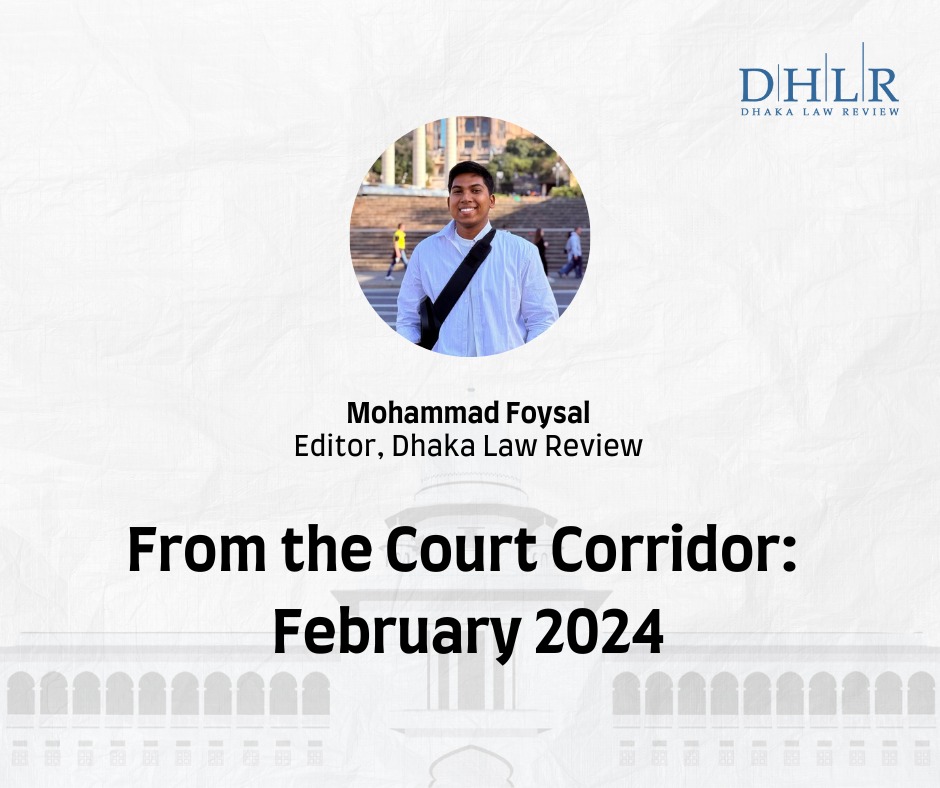
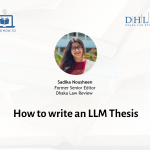
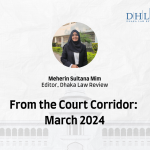
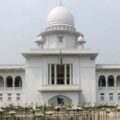

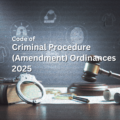






No Comments
Leave a comment Cancel